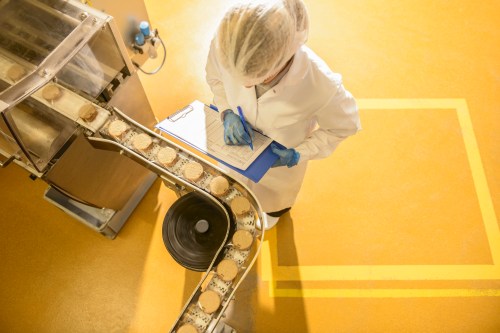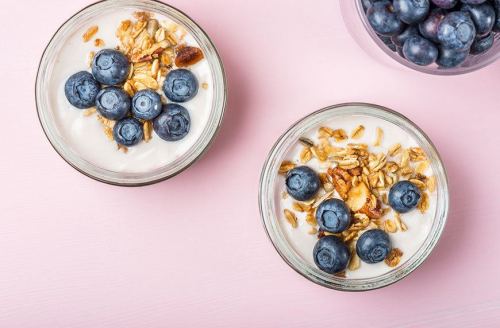Our editors independently select these products. Making a purchase through our links may earn Well+Good a commission
Caffeine cravers, avert your eyes. A growing chorus of experts are suggesting that while it may jolt you awake, your morning coffee habit may not be one worth keeping. (Cue the tune of your venti latte being poured down the drain.) To be fair, coffee has a ton of health benefits—vitamins! minerals! antioxidants!—but some people are more sensitive to its caffeine content and acidity than others. So how do you know if you’d benefit from switching to an A.M. coffee alternative?
Experts in This Article
Claudia is a registered dietitian with a PhD in physical activity, nutrition and wellness. She is an expert in intuitive eating and nutrition science.
registered dietitian and nutritionist
Lauren Minchen is a registered dietitian nutritionist who specializes in digestive illnesses and autoimmune conditions, managing special diets, polycystic ovarian syndrome (PCOS), and cardiovascular health. She is also the nutrition consultant for AI-driven visual food diary app Freshbit.
“If coffee causes any stomach upset or jitters, then one may seek out a better option,” says registered dietitian nutritionist Keri Gans. And if you load up your coffee with sugary syrups to mask its flavor, Gans recommends switching to a healthier option for everyday sipping.
Moreover, coffee is a diuretic. That means it can further dehydrate your already thirsty body first thing in the morning, which may be why you find yourself feeling groggy even after your morning cup of Joe. But luckily, coffee is not the only morning beverage available in the 21st century, and finding a healthy, potentially more delicious replacement may not be as difficult as you would imagine.
Here, nutritionists share their go-to coffee alternatives, for all caffeine tolerances and budgets.
For caffeine without the jitters: Matcha or green tea
“Matcha tea is a great option if the caffeine from coffee makes you a little jittery,” says Gans. As she explains it, all green teas—matcha included—contain an amino acid called l-theanine, which helps negate the less-than-desirable effects of caffeine. (Think anxiety, a racing heart, or insomnia.) Plus, matcha is usually prepared latte-style, which gives it the rich texture and flavor that many former coffee drinkers crave. Find the taste of matcha a bit too grassy? Claudia Thompson, PhD, RD, and Zenwise spokesperson recommends adding just a bit of matcha powder to another beverage, like a smoothie.
If you can’t find matcha in your grocery store, the broader green tea family is also an excellent alternative to coffee. “Green tea is rich in polyphenols, which are natural compounds that fight inflammation,” says Freshbit nutrition consultant Lauren Minchen, MPH, RDN, CDN. “[It also contains] ECGC, a powerful antioxidant that prevents cell damage, slows aging, and reduces the risk of various diseases.”
If you prefer your morning drinks iced, Sound offers a delightful carbonated green tea that could jazz up your day without the addition of sugar or anything synthetic.
For mild flavor (and a mild hit of caffeine): White tea
Minchen also recommends white tea for its antioxidants and polyphenols, which help fight inflammation and premature aging. “Like green tea, white tea boosts heart health by lowering inflammation and LDL cholesterol,” she says. White tea’s also said to be good for bone health and blood sugar control—and thanks to its light color, it won’t stain your teeth like coffee or black tea.
For a stomach-calming, caffeine-free tea: Rooibos tea
If you’re looking to eliminate caffeine altogether, Minchen vouches for rooibos tea—an herbal tea that’s packed with antioxidants. She notes that rooibos tea is “an excellent choice for those looking to avoid oxalic acid or oxalates due to kidney stones,” and that the tea is “a natural ACE-inhibitor, which is great news for those who suffer from high blood pressure.” Rooibos tea is also known to help settle the stomach, which makes it a good coffee alternative for anyone who struggles with morning nausea.
For the transition off of coffee: Mushroom coffee
If you’re looking to avoid the headaches and fatigue that can come with quitting coffee cold-turkey, mushroom coffee is a good stepping stone to low- or no-caf life. Don’t worry: Mushroom coffee doesn’t taste like mushrooms. Rather, it closely resembles the taste of regular coffee, but with less caffeine in many cases. “Mushroom coffee is made from medicinal mushrooms which are known to have adaptogenic properties,” Gans says. “Adaptogens may help protect our bodies from the effect of stress.” Taika is one brand with its own mushroom coffee blend, made with restorative reishi, focus-enhancing lion’s mane, and energizing cordyceps mushrooms.
For a simple and affordable coffee alternative: Warm water with lemon
A staple in Ayurvedic medicine, warm water with a squeeze of lemon is said to help prime the digestive tract for the day. Plus, says Gans, it’s a great source of hydration—something we all need in the morning. Proper hydration, in turn, can help prevent fatigue, brain fog, and headaches—AKA all the things we look to coffee for—while also warding off joint and muscle stiffness and dry skin. Not bad for something that takes just a few seconds (and a few cents) to prepare.
For a serving (or three) of veggies before breakfast: Green juice
If you’re looking to introduce some more fruits and vegetables into your morning routine, Dr. Thompson recommends an energizing green smoothie or green juices. “[These] can be a great alternative, as you can add a daily serving or two of spinach—or other greens—without affecting taste,” she says. You can make your own juices at home using a slow juicer like the Hurom H200, which helps to extract all the nutrients from fruits and vegetables. Prefer to fill up with a morning smoothie? All you need is a high-speed power blender and your favorite produce, and you’ve got a coffee alternative that doubles as breakfast.
Sign Up for Our Daily Newsletter
Get all the latest in wellness, trends, food, fitness, beauty, and more delivered right to your inbox.
Got it, you've been added to our email list.










